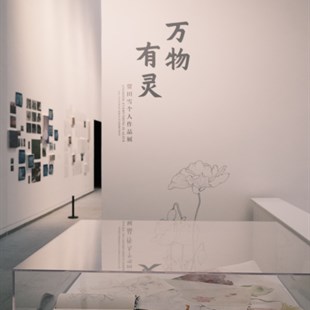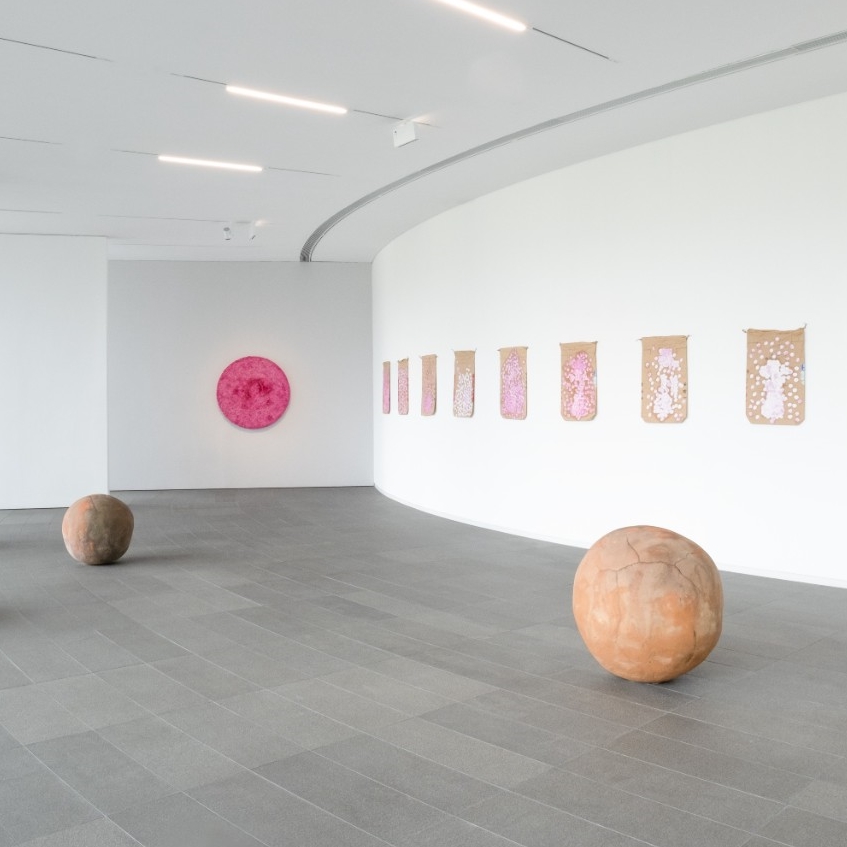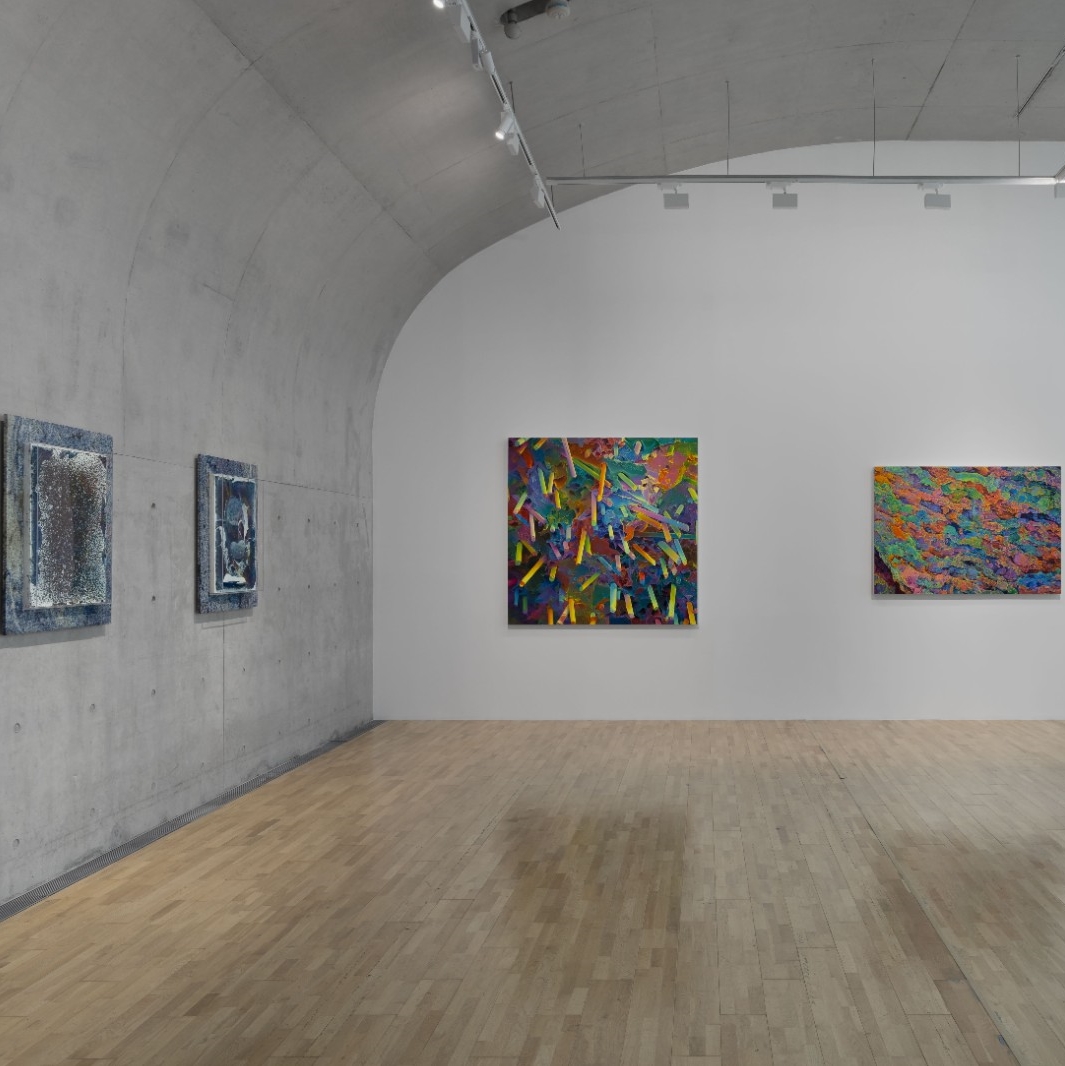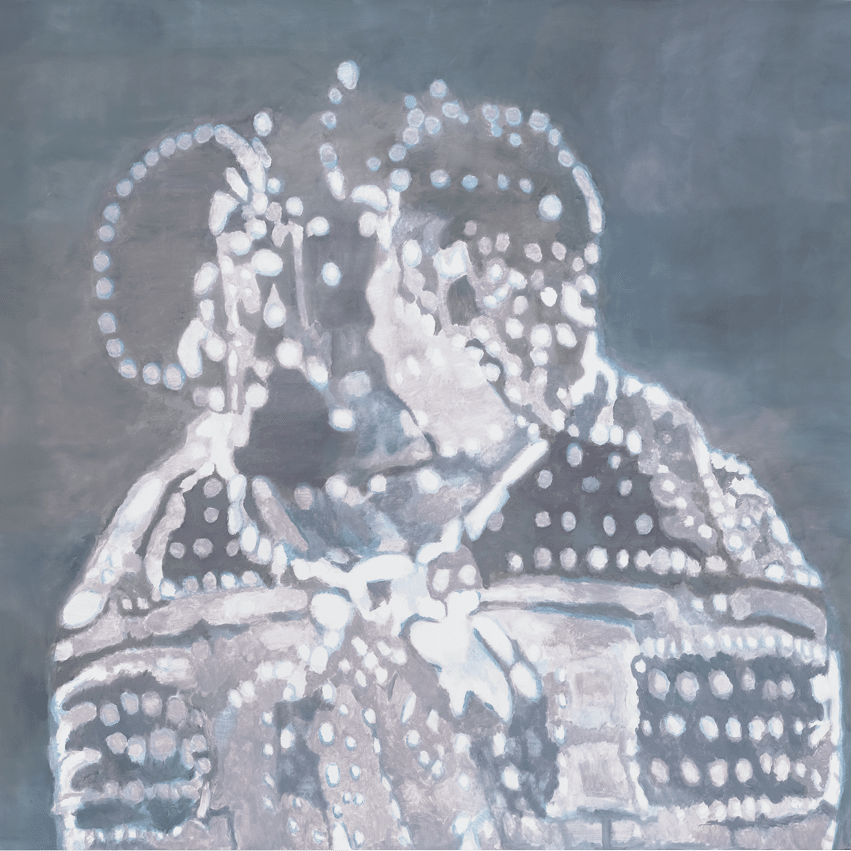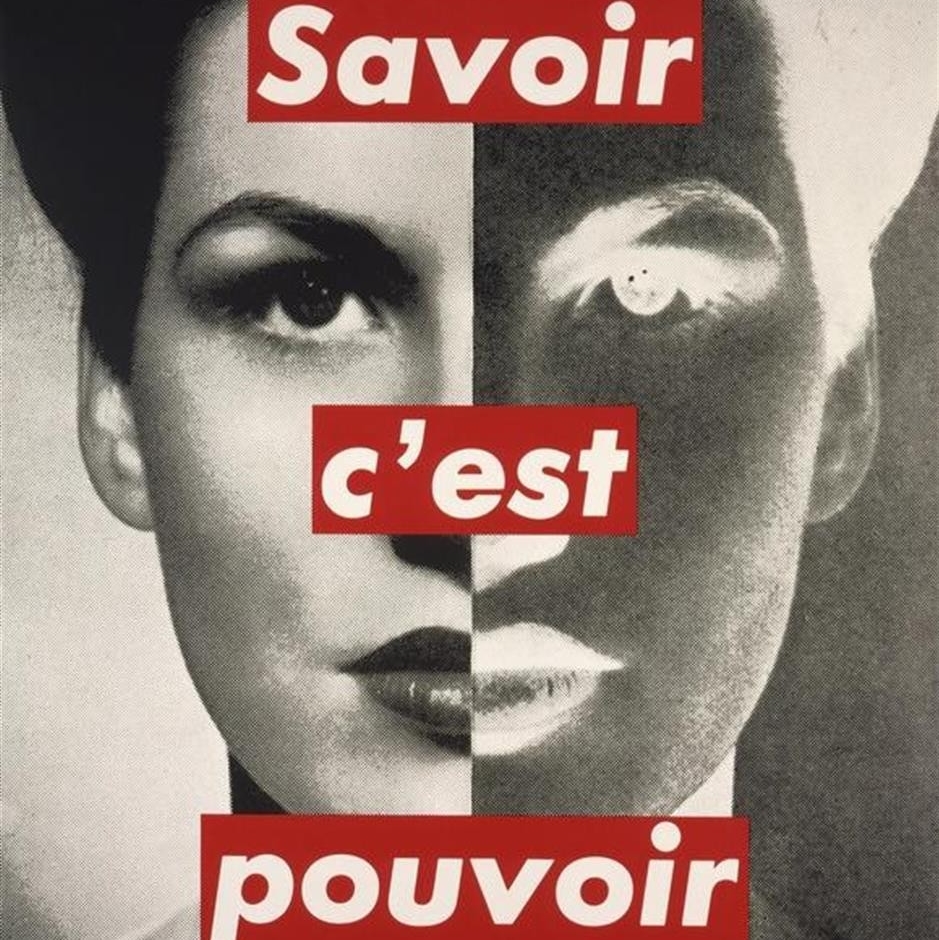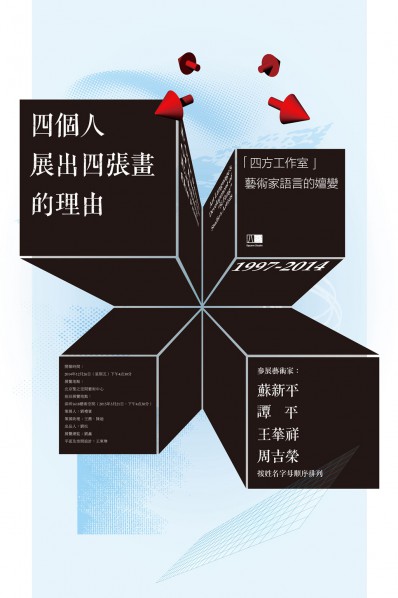
Forward by Curator Liu Libin
In 1997, the four artists, engaged in different print categories, who composed of the “Quartet Studio”, including Su Xinping who is engaged in lithographic creations, Tan Ping who is engaged in copperplate creations, Wang Huaxiang who is engaged in woodcut creations, and Zhou Jirong who is engaged in screen printing creations.
“Quartet” contains the geographical conceptual metaphor of “coming from the quartet”, and also contains the planning of artistic direction for the development of the “Access to the Quartet”; referring to the 4 print categories, and publicizing the creative spirit of freedom. After 17 years, the four artists respectively choose a new work for the exhibition. A dot of a line actually contains all the genes to form a line. Starting from this “dot”, it traces back the artistic honing process of the four artists over the years, and the explorative path of artistic language.

Su Xinping’s understanding of the “Being and non-being grow out of one another” is evolved into the practice of “A brush grows out of another brush” with the painting stroke, on the basis of his consistent attention to artistic language. It is because the language has always been present, which tears at the grand structure of “social narrative”, so that the folds covered by the “discourse” are shown, and the major factors such as body, action and awareness are present through the screen. Thus he is no longer the narrating subject while the subject is dominated by the language.
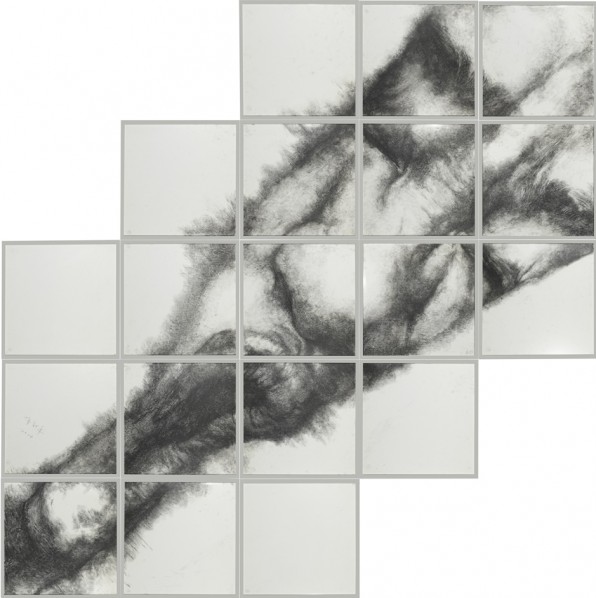
Su Xinping, “Expression”, pastel on paper, 414 x249cm (56 x56cm x 19), 2014
The texture effect of the copperplate creation opens Tan Ping’s perception of formal language, while more than a decade in the creation of abstract art not only makes him a representative of the most typical abstract artists in China, “A Cup”, “A Line” more deeply touching the main construction of Chinese contemporary art, and the independence of Chinese contemporary art.
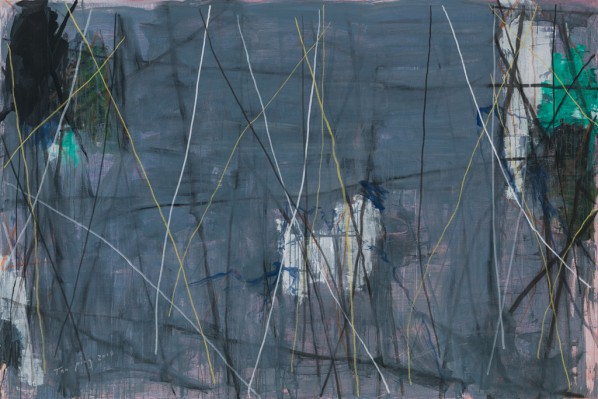
Tan Ping, “Untitled”, acrylic on canvas, 200 x 300cm, 2014
Wang Huaxiang’s “Guizhou People” series of works focus on the intentionally highlighting of cutter marks and retaining the print traces, in the oil painting creation it is evolved into the presentation of oil paint - paint is usually a means of drawing object, while he uses depiction of an object to reflect the presence of paint here.

Wang Huaxiang, “Farming”, oil on canvas, 100 x130cm, 2013
Zhou Jirong’s screen creation and creation of oil painting have been advanced shoulder to shoulder for many years, between the two seemingly “extremely different” art methods it is a clear way of “getting to the same destination”, the diffused poetry intertwined with clear language, constituting his perched place, among which he explores and acts as a hermit of the art world.
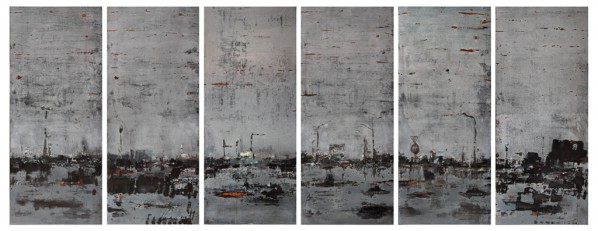
Zhou Jirong, “Mirage No.2”, mixed material, 75 x175cmx6, 2008
December 12, 2014
About the Exhibition
Title: The Reason for Four Artists Showcasing Four Paintings – the Transmutation of Languages by the Artists from “Quartet Studio”
Opening: 4:30 pm on December 26, 2014 (Friday)
Venue: Beijing SZ Art Center
Touring Exhibition: Shenzhen 1618 Art Space (at 4:30 pm on March 21, 2015)
Artists: Su Xinping, Tan Ping, Wang Huaxiang, Zhou Jirong (in alphabetical order by last name)
Curator: Liu Libin
Assistant curators: Wang Wei, Chen Di
Producer: Li Song
Exhibition Director: Liu Xin
Graphic and Spatial Design: Donglin
Forum: at the Auditorium of CAFA Art Museum (at 2:00 pm on January 9, 2015)
Courtesy of the artists and Beijing SZ Art Center, translated by Chen Peihua and edited by Sue/CAFA ART INFO.


